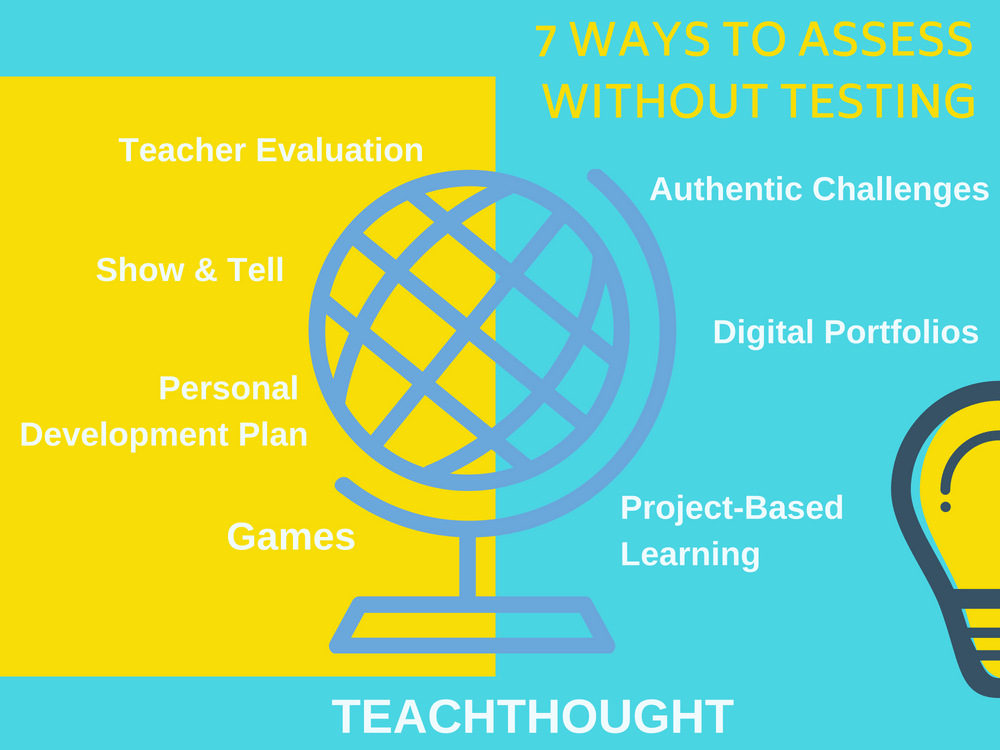
How To Assess Without Testing
contributed by Steve Wheeler, Learning Innovations Consultant
Children don’t learn any more or any better because of standardized testing unless there is feedback on how they can improve.
But SATs seem to be the weapon of choice for many governments across the globe. It seems that little else matters but the metrics by which our political masters judge our schools. At a recent head teachers conference, one of the most astute comments was ‘you can assess without testing.’ There are many ways to assess, and here are seven:
7 Easy Ways To Assess Without Testing
1. Teacher Assessment
Questioning is an old, tried and tested method where teachers check children’s understanding. The questioning must be appropriate, and timely, however. A well-timed question can reveal how developed children’s understanding is, and what needs to be done to help them to reach a particular standard.
Another method is teacher assessment is through observation. This has been used for centuries and is great for ascertaining how well a child has mastered a particular skill, whether they are disengaged or are on task, and how well they are integrating into the social context of learning.
2. Show & Tell
When children get the chance to present something to the rest of their class, they often grab it with both hands.
If they are passionate about a topic, they will show how much they have learned from what they present and how they present it. Show and tell also encourages children to think about their learning, and makes them more aware of how they have learned it. Most importantly, show and tell helps children to develop their articulation and explanation skills (speaking and listening).
3. Personal Development Plans
Teachers can work with individual students to agree on what they wish to achieve. This is often connected to their passions and keen interests and can be instrumental in shaping their future careers. This is a very personalized form of self-assessment, which can be facilitated by the teacher as an informal method of assessment. It indicates how well students are progressing in a range of subjects, but ultimately is about their readiness to take up responsible positions in society.
4. ePortfolios/Digital Portfolios
This is clearly a digital age assessment tool, allowing students to build their own personal profiles, develop a CV, showcase their achievements and generally develop their presentation skills using a set of digital tools. This goes hand in hand with number 3, enabling students to apply their learning with a view on their future employment. Most e-portfolios have a setting that allows students to share their learning and qualifications with others such as potential employers when required.
5. Games
There is an increasing number of games that can showcase children’s learning, especially in some of the core subjects such as numeracy, science, and literacy. Although games are generally fun and can be competitive, the key aspect of playing the game is that children can develop reasoning and problem-solving skills which are demonstrated in the levels they reach and the points they score.
6. Authentic Challenges and Real-World Tasks
My own students showcase their learning through making videos or writing blogs. The feedback is informal, and the learning is variable, but such activities can clearly lock into the demands of future work. Some of my students are given the chance to speak publicly, either at Teachmeets run by their own Education Society, or at other events nationally, and even internationally such as conferences.
This can take many different forms, depending on what most interests the student. Some projects can run for a term, or even an entire academic year. Students develop a number of organizational skills such as resource and time management, and if the project is collaborative, can also lead to building negotiation, decision making, and leadership skills.
There are many other ways to assess without testing. Your comments are very welcome!
7 ways to assess without testing by Steve Wheeler was written in Plymouth, England and is licensed under a Creative Commons Attribution-NonCommercial-ShareAlike 3.0 Unported License